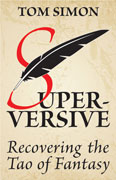Fifty years and a couple of days after he departed from the Shadowlands.
Aristotle said that some people were only fit to be slaves. I do not contradict him. But I reject slavery because I see no men fit to be masters.
—C. S. Lewis, ‘Equality’ (collected in Present Concerns)








Recent Comments